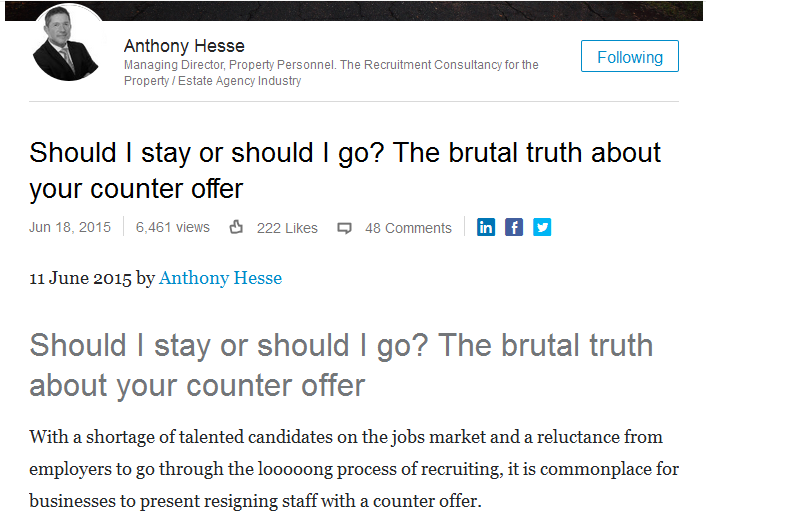
Social Media is essentially a modern day phenomenon. The ease of inter-connectivity and reach it provides is nothing short of astounding. Now, a person or business can go viral online within hours; for all the right reasons or more dangerously, the wrong ones. Take British Airways for example, whom were on the receiving end of a ‘promoted’ tweet seen by thousands, outlining their alleged poor customer service.
For an SME, it is arguably very important to effectively manage and harness the available Social Media platforms, for instance Facebook, Twitter, Instagram etc. But why? Why should one invest limited time and resources into such thing when other aspects of a business could be focused on? Social Media can be an extremely powerful tool if used correctly…
Why does it matter?
Inevitably the resources available to an SME compared to a multi-national are significantly lower. However, one of the main attractions with Social Media is it’s availability. Essentially free to use (when not promoting content or sponsoring posts), anyone can set up an account almost instantly and start broadcasting their goods and/or services. Moreover, this can be harnessed in a way whereby a business, whether that be an SME or in fact a multi-national, can adopt their Social Media platforms for a great number of things; such as marketing, gaining publicity or managing customer relations.
Evans (2011), defined Social Media Marketing as a practice in which businesses seek to engage consumers in the online social locations which they naturally spend time. The accessibility of amalgamating a Social Media platform into such a tool is an attractive proposition for an SME with limited resources, allowing the business to increase not only levels of engagement, interaction and connection with customers, but also overall traffic to the platform used and/or company website. The Guardian have written an interesting article, providing examples of how small businesses have used social media to enhance their growth.
What do you need to take into account?
Despite the benefits of an effectively managed Social Media presence, there are a number of important factors to take into account. To begin with, it is important to note ‘relevance’. Does an SME whom specialises in recruiting really need to be active on Instagram? Would this not be deemed as essentially a waste of time? Likewise, it could be unlikely that a small restaurant needs to focus the majority of its efforts on the LinkedIn platform. As aforementioned, the somewhat limited resources possessed by an SME need to be used efficiently. Resultantly, a lack of experience, expertise, time and focus can contribute to inappropriate or ineffectively managed social media accounts, with sometimes damaging results; demonstrated in this article (Warning: contains some strong language). A good example of relevant and also effective engagement with a correct audience however, can be seen below:

The above example illustrates an SME which specialises in recruitment. They have used the LinkedIn platform as a means of communicating and reaching potential clients. Notwithstanding, the topic is in the relevant field and interest of the business’ target audience. The views, likes and comments may not seem substantial compared to say that which can be found on some Facebook articles, but the engagement is highly relevant to what the SME is offering. Prompting discussion and interest surrounding a certain topic (or issue) provides a unique two-way communication with the consumer, whereby they can offer their own personal views and opinions about the subject. This can be highly beneficial; especially if it can enhance or improve the business in anyway – (not to forget that this is all at relatively low cost if not outsourced).
How is it actually used?
Evidently however, it is important not to focus one’s efforts on social media platforms which will offer little reward or benefit to their organisation. The video below explains how SME’s can use Social Media in their Marketing Strategies, highlighting the purpose of such a strategy, combined with the benefits and drawbacks it brings:
https://www.youtube.com/watch?v=CT_CLxFzVng
Social Media, when used appropriately and effectively, can be a wonderful tool for substantially raising brand awareness and reaching out to consumers; especially for an SME. It goes without saying though that this is easier said than done and is unlikely to happen overnight. Some barriers of mastering Social Media platforms are as simple as lack of understanding of the platform (for instance the correct use of Twitter hashtags) or even an overall lack of ability whilst using ever-changing technology. It is important to remember however, that there are many resources available freely online, combined with different avenues to take such as outsourcing; if necessary. This insightful article covers the top 10 reasons why SME’s fail at Social Media – a vital read on your path to Social Media Mastery!
References and Sources:
Curtis, S. (2013). Twitter user buys promoted tweet to complain about British Airways. [online] Telegraph.co.uk. Available at: http://www.telegraph.co.uk/technology/twitter/10283117/Twitter-user-buys-promoted-tweet-to-complain-about-British-Airways.html [Accessed 16 Apr. 2016].
Evans, D., (2010). Social media marketing: the next generation of business engagement. John Wiley & Sons.
Goldfield, A. (2012). Why Many Small Businesses Fail at Social Media. [online] Social Media Today. Available at: http://www.socialmediatoday.com/content/why-many-small-businesses-fail-social-media [Accessed 18 Apr. 2016].
Moth, D. (2013). The top 16 social media fails of 2013. [online] Econsultancy. Available at: https://econsultancy.com/blog/63901-the-top-16-social-media-fails-of-2013/ [Accessed 16 Apr. 2016].
Niven, R. (2014). How small businesses are making the most of social media to grow. [online] the Guardian. Available at: http://www.theguardian.com/small-business-network/2014/apr/16/social-media-smes-growth [Accessed 14 Apr. 2016].